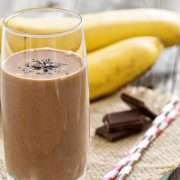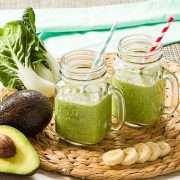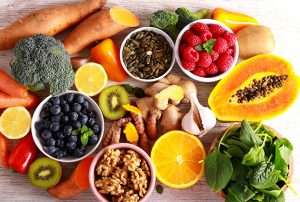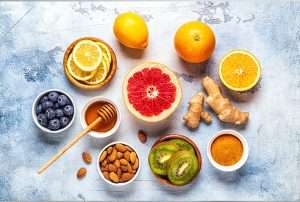Are Plant Proteins Complete? (Here’s the Answer)
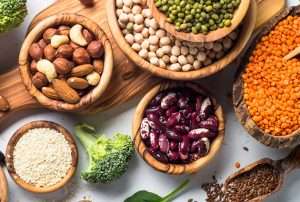
Have you ever come across anybody with an amino acid deficiency? Or a protein deficiency? Chances are, not likely. Of the twenty two amino acids present, there are nine which our bodies can’t produce on their own and rely on protein-rich food sources to obtain. Different sources of protein contain different types of amino acids in varying amounts.
Example: Peas are extremely rich in leucine (about 9% of its weight) which is fantastic for muscle building purposes.
It’s simply not true that plants are considered to not have all nine of the essential amino acids our bodies need. The truth is, amino acids vary in concentration amongst different sources of protein. Pea protein, for instance, is rich in leucine, but low on methionine. By eating a varied diet rich in different sources of protein, our bodies easily combine amino acids fulfilling our requirement.
Olena’s EVOLVE Performance Plant protein combines pea protein isolate with sprouted brown rice protein isolate to create a balanced and complete amino acid profile.
Types of Amino Acids
Our body needs 22 different types of amino acids to function properly. Thirteen of those amino acids are synthesised by our bodies and nine are obtained through our food.
Complete vs Incomplete Proteins
The essential amino acids derive the classification of protein into two types – complete proteins or incomplete proteins. Complete proteins are those that contain all essential amino acids in sufficient quantity and incomplete proteins are those that do not contain all 9 essential amino acids or do not have sufficient quantities of them to meet the body’s needs and must be supplemented with other proteins.
Animal-based proteins like meat, fish, dairy, eggs are generally complete proteins, and most plant-based proteins sources are incomplete protein sources. But there are also a few plant sources which are considered as complete. These are Quinoa, Buckwheat, Hemp and chia seed, Spirulina.
But just because certain plant-based sources are incomplete proteins doesn’t make them inferior. They just need to be combined to provide the right balance of essential amino acids.
Complete plant-based proteins
Plant-based protein sources when combined provide a complete amino acid profile and fill any potential nutritional gap which results from a single protein source.
One of the best combinations of plant-based protein is brown rice and pea protein. They provide equal levels of essential amino acids as animal protein (whey), and therefore provide a complete amino acid profile. They also surpass other plant-based sources in their protein content – the protein content of pea (yellow split pea) is 80% and brown rice has a protein content of 90%.
So if you are a vegan or are following a plant-based diet, then brown rice and pea protein is the combination you should look for in your protein supplement.

